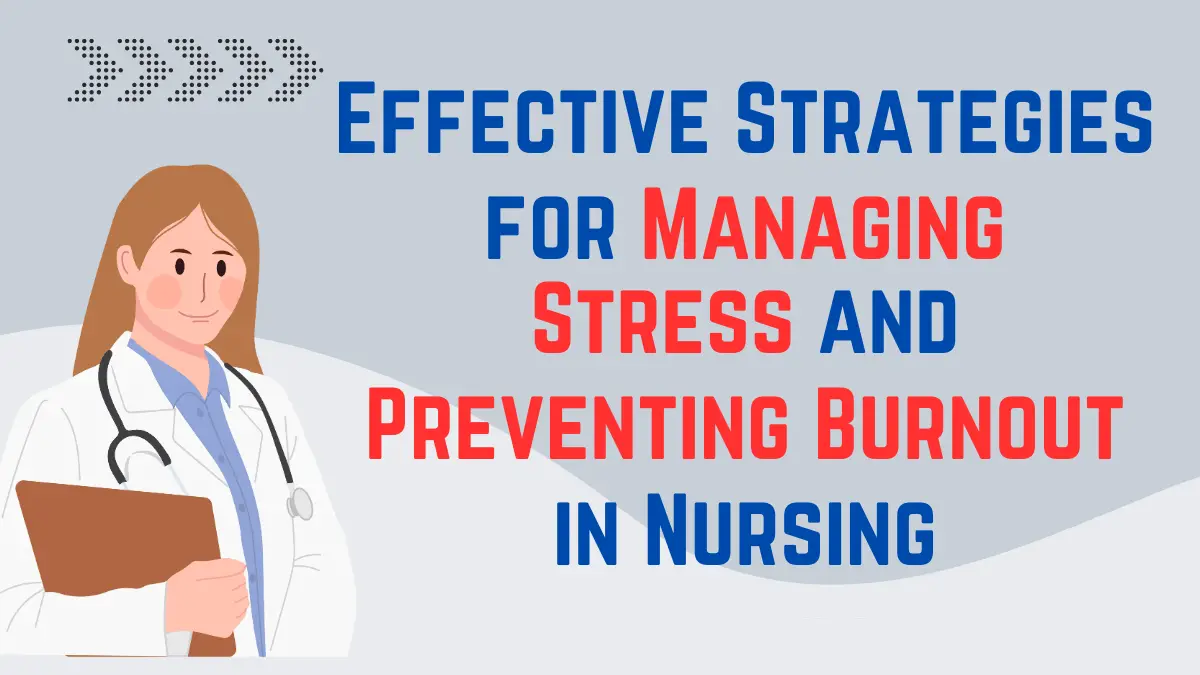Stress and burnout are prevalent issues among nursing professionals, stemming from the demanding nature of the profession. Nurses often face long hours, high-pressure situations, and emotional strain, leading to physical and mental exhaustion. However, with the right strategies, nurses can effectively manage stress and mitigate the risk of burnout. In this comprehensive guide, we’ll explore actionable tips backed by research and expert insights to help nursing professionals maintain their well-being while delivering exceptional care
Understanding Stress and Burnout in Nursing:
Defining Stress and Burnout:
Stress is the body’s natural response to demanding situations, while burnout is a prolonged state of physical, emotional, and mental exhaustion caused by excessive and prolonged stress. In nursing, stress and burnout can result from factors such as understaffing, high patient loads, administrative burdens, and witnessing traumatic events.
Recognizing the Signs:
It’s crucial for nurses to recognize the signs of stress and burnout early on to prevent escalation. Common symptoms include fatigue, irritability, decreased job satisfaction, insomnia, and feelings of detachment.
Table: Strategies for Managing Stress and Preventing Burnout
| Strategies for Managing Stress and Preventing Burnout |
|---|
| Prioritize self-care |
| Establish boundaries |
| Seek social support |
| Practice mindfulness |
| Foster positive relationships |
| Engage in continuing education |
Effective Strategies for Managing Stress:
1. Prioritize Self-Care:
Nurses must prioritize self-care to maintain their physical and mental well-being. This includes getting adequate sleep, eating a balanced diet, engaging in regular exercise, and practicing relaxation techniques such as meditation or deep breathing exercises.
2. Establish Boundaries:
Setting boundaries is essential for preventing burnout. Nurses should learn to say no to excessive work demands, delegate tasks when possible, and carve out time for personal activities and relaxation.
3. Seek Social Support:
Building a strong support network can help nurses cope with stress more effectively. Whether it’s through peer support groups, professional counseling, or talking to trusted colleagues, seeking social support can provide emotional validation and encouragement.
Preventing Burnout:
1. Practice Mindfulness:
Mindfulness techniques, such as mindfulness meditation or yoga, can help nurses cultivate awareness and resilience in the face of stress. By staying present in the moment and focusing on their breath or bodily sensations, nurses can reduce anxiety and prevent burnout.
2. Foster Positive Relationships:
Nurturing positive relationships with colleagues and patients can buffer against the negative effects of stress. Building rapport, practicing empathy, and fostering a supportive work environment can enhance job satisfaction and resilience.
3. Engage in Continuing Education:
Continuing education allows nurses to stay updated on the latest evidence-based practices and advancements in healthcare. By investing in their professional development, nurses can feel more competent and confident in their roles, reducing feelings of stress and burnout.
Conclusion:
Managing stress and preventing burnout are critical components of maintaining a healthy work-life balance in nursing. By implementing the strategies outlined in this guide, nurses can safeguard their well-being while continuing to deliver high-quality care to their patients. Remember, prioritizing self-care, seeking social support, and fostering positive relationships are key to thriving in the nursing profession.


